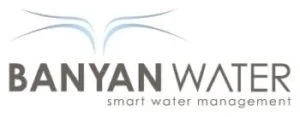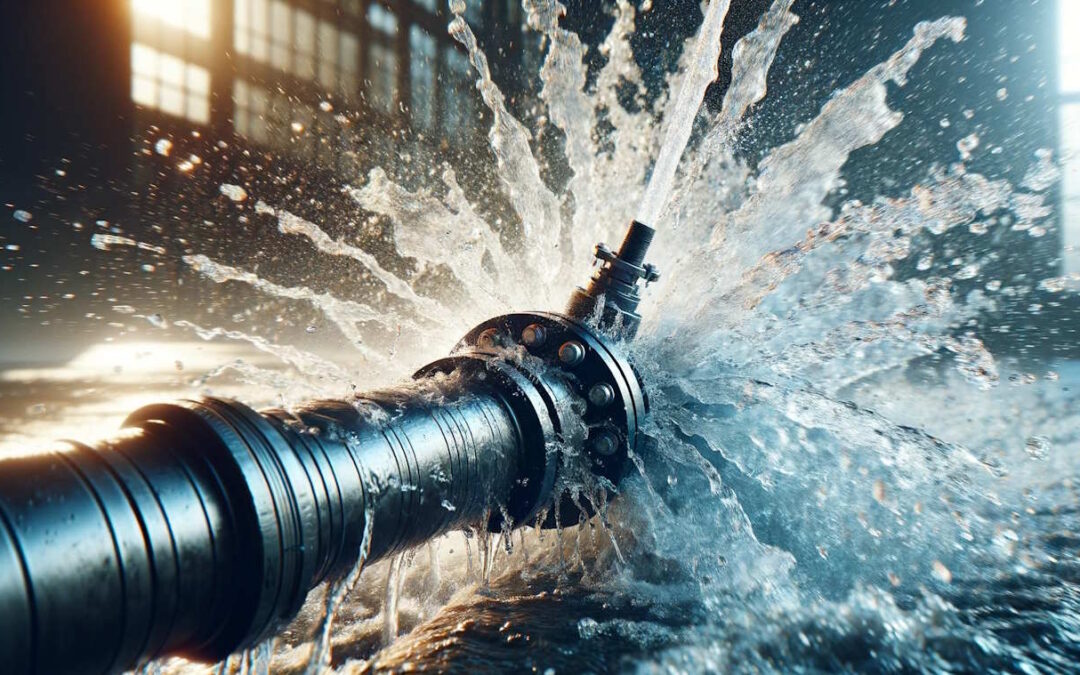Plumbing systems are an essential part of every commercial property. These include indoor water systems as well as outdoor ones for irrigation.
It is therefore critical to monitor these water systems with a good commercial leak detection system. This is comprised of special equipment that connects to water meters that monitor the water flow and sends this data to a monitoring service.
The flow meter monitoring service will then present this flow data so it can be viewed on your desktop or phone.
Detecting leaks has many benefits including avoiding high utility bills, costly damage, mold prevention, pipe damage, slip and fall liabilities, and more.
In this article, I’ll explain the ways to monitor flow and how leaks can be detected and show the equipment needed as part of a total building leakage solution.
Flow Based Leak Detection Systems
Water flow through a pipe is typically measured in two ways:
- In-line Water Meter
- Ultrasonic clamp-on flow meter
In-line water meters are very accurate and can measure water flow down to tenths of a gallon or less. They have a downside in that they need to be installed “inline” by cutting or inserting a pipe typically requiring a certified plumber and the water will need to be shut off to the property while the meter is installed.
Once installed they offer a great solution for measuring the water flow.
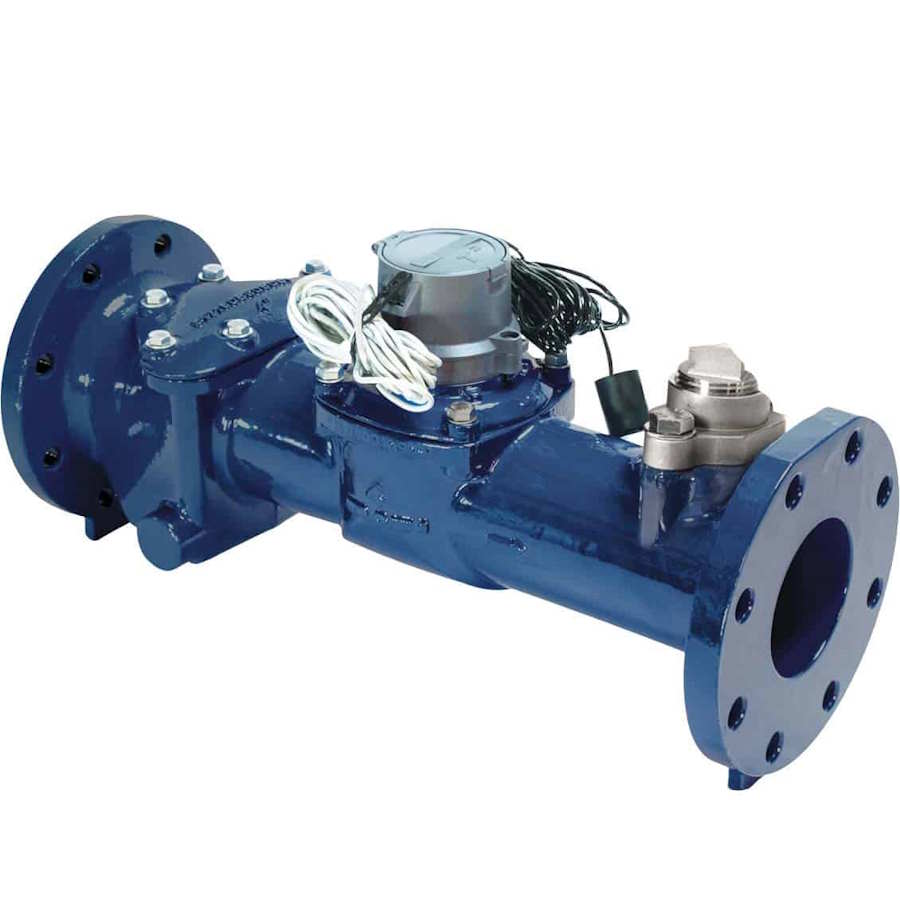
Also, In-line water meters do not require external power and can be connected to a wireless system that can then monitor the meter’s flow. This allows you to view usage graphs and even get alerts if a leak should occur.
Ultrasonic water flow meters are easy to install by clamping them on the outside of the pipe. However, they require power to operate, typically 24 volts, and can be more expensive compared to an inline flow meter.
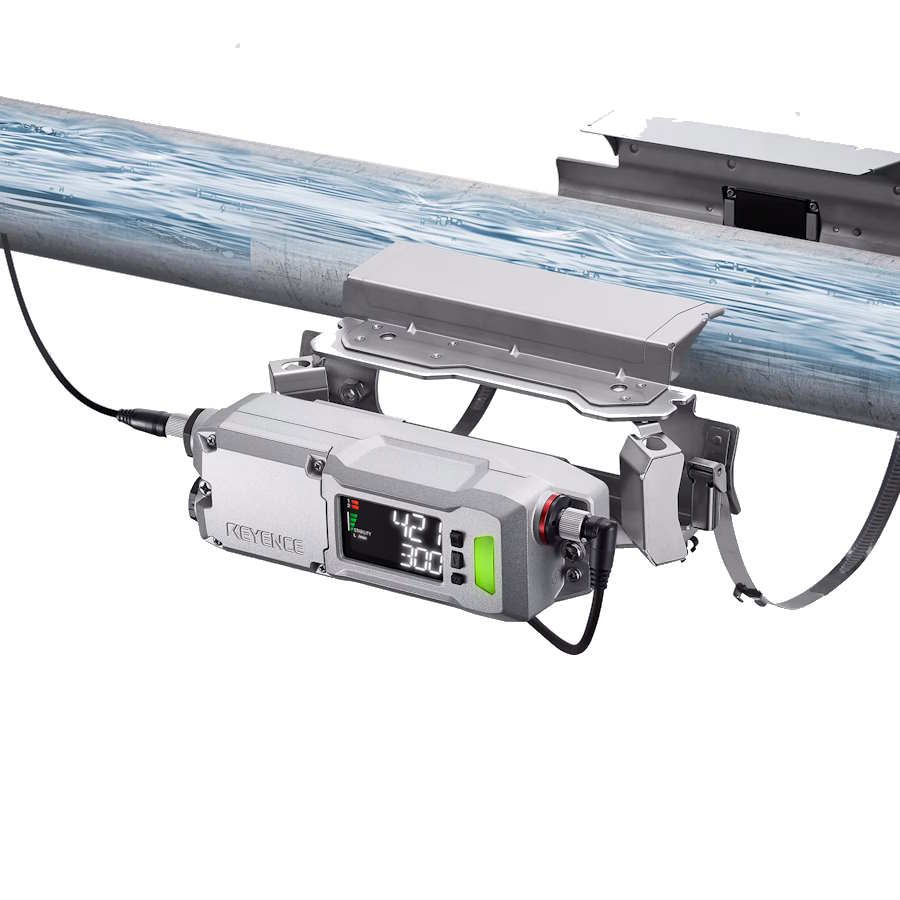
These meters work by sending an ultrasonic frequency through the liquid that gets reflected back, and the reflected time varies when the water is flowing, thus a flow rate is calculated.
They also do not require the water to be shut off while installing and do not need special labor or material costs. These ultrasonic meters can be connected to a wireless system for monitoring.
These meters can work on metal and plastic pipes, like PVC, and will typically be between 3-5% accurate depending on the temperature of the liquid flowing through. The ultrasonic meter must be matched to the size of the pipe and configured for the pipe’s material.
Building Leak Detection System (Indoor)
Commercial Indoor plumbing can present challenges when trying to monitor flow. It is best to monitor the water before it goes inside the building. This can be done with either an inline or ultrasonic meter described above.
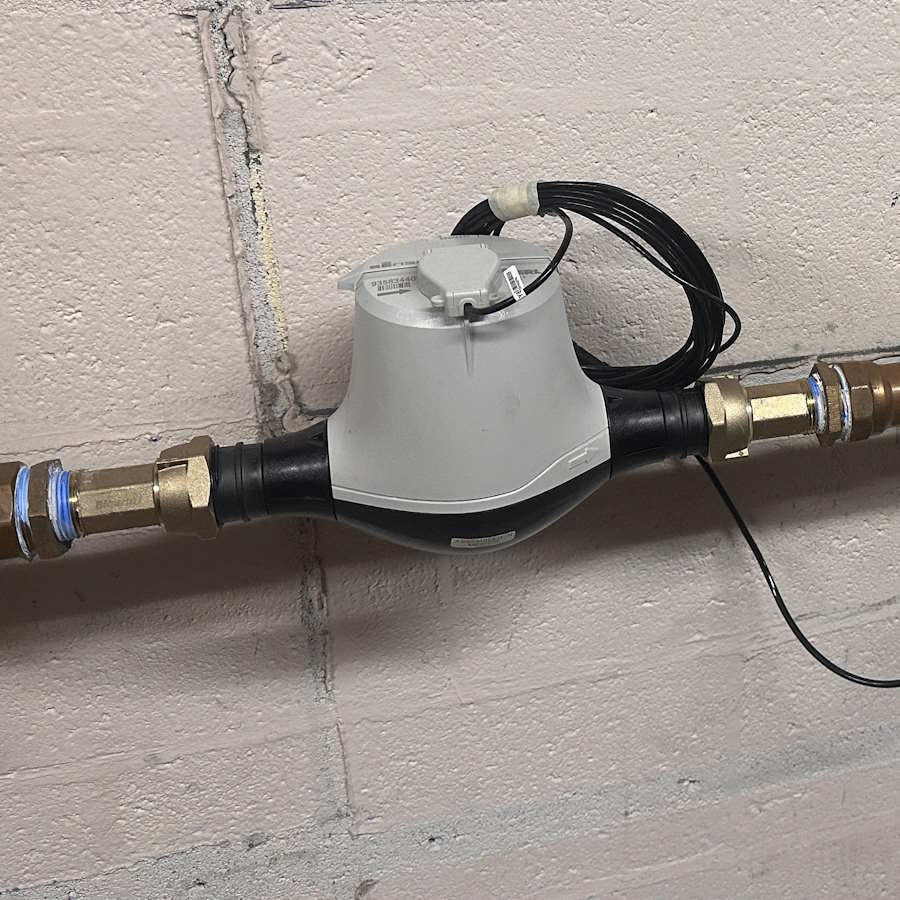
Once installed, it allows water flow data to be collected and analyzed. For example, you may want to know when water is being used and how much. Maybe the night crew is leaving the water running more than usual or a certain store is using more water than other stores.
You can then match this water usage to your utility bills to see if there is an error or even graph the usage over time to see abnormal trends.
Also, this allows you to detect leaks and send out alerts or even cut the water off at the main to prevent costly damage.
Irrigation Leak Detection System (Outdoor)
It may be hard to believe, but 70% of all fresh water consumption is used by irrigation, and water utility prices are likely to go higher every year.
So, it makes sense to monitor your irrigation system to know when it is running, and what zones are running, all in an effort to keep utility bills low while still maintaining the appearance of your property.
Irrigation meters will typically have a master valve which is the main line that feeds other zones. This master valve has integrated flow monitoring which can be monitored for data collection and leak detection alerts.
The master valve as well as other irrigation zones can be remotely controlled by wireless systems to be turned on and off according to schedules which can be changed seasonally or as needed.
All of this usage data and the alerts can be monitored from a desktop app or mobile phone.
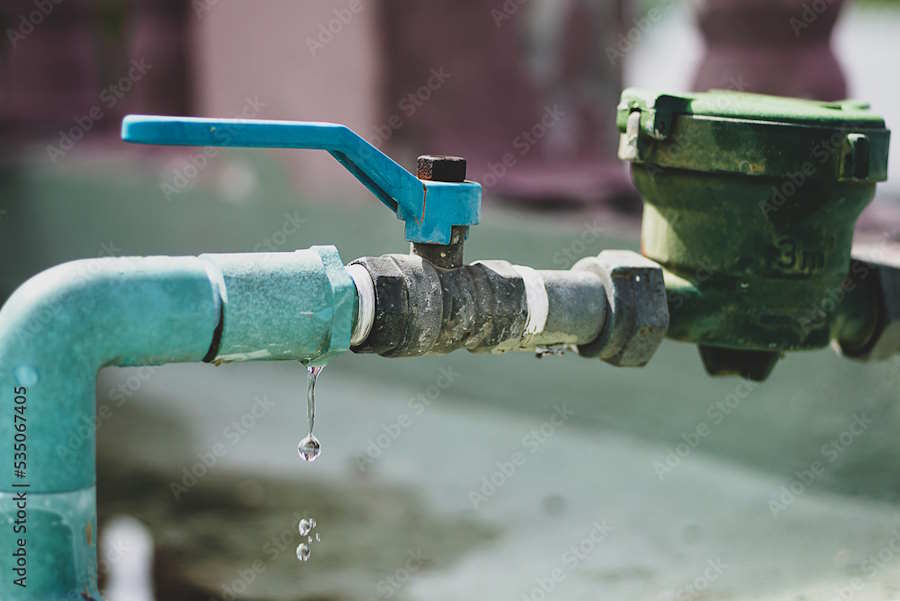
Water Leakage Detection System
In any indoor/outdoor plumbing system, there may be water dripping slowly from pipes and fixtures that may not be detectable by the flow-based detection systems mentioned above.
In addition, these leaks may occur in areas that are seldom visited or hard to reach.
The water dripping from pipes can cause many problems. This moisture buildup can cause damage such as mold, spalling/efflorescence damage, rust, and other rot in building materials.
These slow leaks can be detected by standalone wireless systems that allow for multiple zones. For commercial or industrial environments a moisture leakage sensor that is battery-powered may not be practical, as replacing many batteries will not work.
Hard Wired Water Leak Sensor
This is where a hard wired water leak sensor comes in. Depending on your application, you can put a water probe in areas under pipes or even corners or areas that are difficult to access.
Probe wires are very thin and can run long distances making them easy to install.
This kind of water leakage sensor should be used with flow-based monitoring system mentioned above to completely protect that area from water leaks. This can be done from the same wireless sensor.
Conclusion
In this article, we discussed commercial water leak detection systems, the various ways of monitoring flow to spot leaks, and how critical this can be for keeping your water utility bills manageable.
At Banyan Water, we offer commercial leak detection services as well as equipment, such as master valves, Sensus indoor/outdoor water meters, flow monitoring, hard-wired leak detection systems, and data collection and alerting services.
Contact us below to book a demo call and discuss options available to protect your property.
FAQs
how to detect a water leak in a building?
how do water companies detect leaks?
